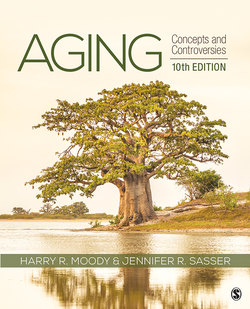Читать книгу Aging - Harry R. Moody - Страница 43
На сайте Литреса книга снята с продажи.
Leisure Activities in Later Life
ОглавлениеOld age is characteristically a time when the work role becomes less constricting. Leisure may take its place as a way of finding meaning in life. We might think of leisure simply as discretionary time, which becomes more available during the retirement years. But more deeply, leisure can be defined as activity engaged in for its own sake, as an end in itself. Leisure is not simply what we do with “leftover” time, but a multidimensional quality of life different from paid employment, household maintenance, or other instrumental activities. Aristotle described leisure as a realm in which human beings gain freedom for self-development when the necessities of life have been taken care of.
Does leisure actually replace the work role in later life? Does it become a powerful source of meaning in its own right? The answer to these questions depends on the quality of subjective experience during leisure. Leisure may be an end in itself, but moments of leisure also have a developmental structure; they are not complete in themselves. For example, if we play sports, perform music, participate in political or civic activities, or read a book, each moment leads to the next in some purposeful developmental pattern. By contrast, other common leisure activities, such as TV viewing, take up a lot of time for older people, but tend to be passive or less demanding. If leisure activity is to be a path to deeper meaning, then it must have some dimension of growth or personal development (McGuire, Boyd, & Tedrick, 2004; Bielak, 2017).
As people get older, they usually engage in the same activities as earlier in life, but with advancing age, there tends to be an overall decline in the level of participation. It is a mistake to think in stereotypes about “old people’s” activities, such as shuffleboard, bingo, and singing old-time songs. That stereotype is wrong because age alone does not serve as a good predictor of what people do with their leisure in later life. Old people are not all alike. Variations and individual differences, along with the influence of gender, cultural background, education level, socioeconomic status, and other factors, play a big part.
